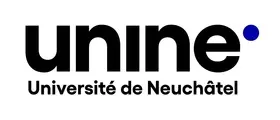
Academic Interview Tips
Read a summary using the INOMICS AI tool
Pursuing an academic career is very different from working in the private sector in many ways, including in terms of the application and recruitment process, even before you start in your first job!
Interviews for any kind of job are stressful. In a short period of time you need to show the best of yourself, and sell yourself to a potential employer. This is always challenging, especially if you are doing so for the first time. In light of this, we decided to aggregate a number of tips on how to make your interviews for an academic position go more smoothly. This can hopefully help increase your chances of getting the job of your dreams in a university or college, especially in preparation for the upcoming American Economic Association Meeting 2014.
Obviously there is no single prescription of what to do and how to behave in an interview, but there are some important guidelines to follow.
Plan your Time: don’t miss your deadlines
Plan your applications in advance and remember that many positions for autumn 2014 are already open. Today, November 14, is an important date for those interested in the American economics job market – the Economics Job Market Signaling registration is officially open and will run for the next two weeks.
Do your Homework: know how to present your research and know the institution you apply for
It may sound obvious, but the fact that you have to be prepared for each interview cannot be overstated. Thorough research about the institution you apply for as well as about people who will interview you (if you know the names) is an absolute prerequisite. Of course you need to be ready to talk about yourself and your research. The best strategy is to have a shorter and a longer summary version of your research paper and use the one necessary according to the situation. You should also be able to discuss the significance of your research, its potential limitations and further steps you plan to take.
Expect Tricky Questions: it is not just about your research
You have to be ready to answer different “Why?” and “How?” questions, and not all of them are going to be about your research. The most obvious ones are “Why did you apply for this specific institution?” and “How would you teach an intro course of X subject for undergrads?” There are dozens of resources available on the Internet describing frequently asked interview questions. Look through them and make sure you have a reasonable answer ready for all of them.
Be Prepared
Look smart and behave accordingly. Don’t forget to bring extra copies of your CV and slides/handouts for the presentation (if you are required to make one). Make sure you know your CV well since you might get questions about specific experiences listed – and the answers need to be consistent.
Be Proactive during the Interview
Ask questions! Good interviews are organized so that the two-sided matching procedure is successfully implemented. It is the only time when your potential employers can assess you in person and the best time for you to evaluate you potential colleagues. Moreover, prepare a couple of questions you would like to ask about the faculty or university, or the teaching peculiarities one might encounter (normally at the very end of the interview).
Take Notes
Bring notes and take notes! It always looks more professional if you come to an interview with some prepared materials already. Even if you don’t refer to your notes it shows that you’ve taken the time to prepare, and that you’re confident. After the interview write down relevant information from the points discussed that might later help you choose between different positions shoul you get more than one job offer.
Final tips: Check out this witty and very useful “Advice from David Laibson” about how to plan and get ready for AEA/ASSA meetings, what questions to expect during the interview and how to deal with fly-outs should you be invited.
To see where you are in terms of the global economics job market, you can also look at the INOMICS Econ Job Market Report 2013 which outlines preferences and trends from the perspectives of both economists and employers.
And remember: you make the impression in the first 3-5 minutes of the interview, so try your best to say the most valuable information about yourself within that time. One more important thing: if you receive an invitation to an interview, the institution has already decided that you are competent for the position. Hence, try to relax and present your skills, knowledge and experience clearly and confidently.
We wish you luck in all your upcoming interviews. And if you have any interesting experiences to share, feel free to leave comments!
-
- Postdoc Job
- Posted 2 weeks ago
Research Associate (Post-doc, f/m) in the fields of applied econometric and distributional analysis
At LISER (Luxembourg Institute of Socio-Economic Research) in Esch-sur-Alzette, Luxemburg
-
- Konferenz
- Posted 3 weeks ago
Industrial Policies in a Globalized and Financialized World
Between 7 May and 8 May -
- Postdoc Job
- Posted 1 week ago
Postdoctoral Researcher (all genders welcome)
At Georg-August-Universität Göttingen in Deutschland











